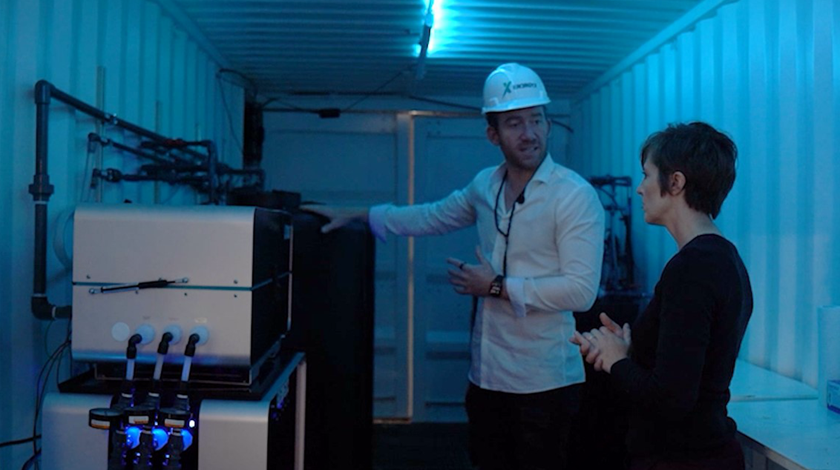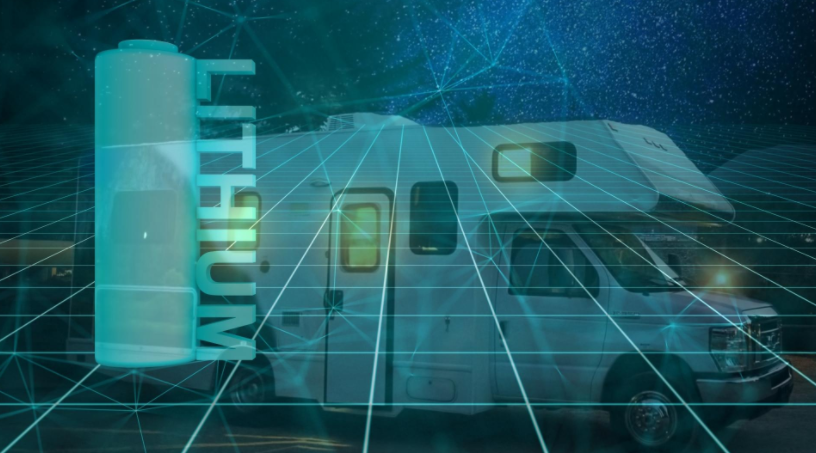Enhancing Communication Base Stations with Lithium Battery Technology
Introduktion
Communication base stations play a crucial role in the modern world, facilitating the exchange of information and enabling seamless communication. However, these base stations often face challenges related to power supply, especially in remote areas or during natural disasters when the grid is unavailable. To address this issue, the integration of lithium battery technology can significantly enhance the performance and reliability of communication base stations. This article explores the potential benefits of using lithium batteries in communication base stations and highlights their importance in ensuring uninterrupted communication.
Benefits of Lithium Battery Technology
1. Higher energy density: Lithium batteries offer a higher energy density compared to traditional lead-acid batteries. This means that they can store more energy in a smaller and lighter package. For communication base stations, this translates into reduced space requirements and increased mobility.
2. Longer lifespan: Lithium batteries have an extended lifespan compared to other battery technologies. With proper maintenance and management, these batteries can last for several years, providing a reliable power source for communication base stations. This longevity helps reduce operational costs by minimizing the need for frequent battery replacements.
3. Faster charging capabilities: Lithium batteries have the advantage of fast charging, allowing base stations to quickly recover power during temporary grid outages or low energy situations. This ensures a continuous power supply to support uninterrupted communication services.
4. Enhanced efficiency: Lithium batteries exhibit higher charge and discharge efficiency, resulting in a more efficient use of stored energy. This efficiency is essential for base stations, as it ensures optimal utilization of available power resources and minimizes energy wastage.
5. Environmental friendliness: Unlike lead-acid batteries, lithium batteries are environmentally friendly due to their lack of toxic substances. They produce no harmful emissions or waste during operation or disposal, making them a sustainable choice for communication base stations.
Applications of Lithium Battery Technology in Communication Base Stations
1. Off-grid and remote areas: Communication base stations in off-grid or remote areas often face challenges in accessing a stable power supply. By integrating lithium battery technology, these base stations can operate independently, ensuring uninterrupted communication services to remote communities and improving connectivity in underserved regions.
2. Emergency situations: During natural disasters or emergencies, when the power grid is compromised, communication becomes even more critical. Lithium batteries provide a reliable backup power source, enabling base stations to continue functioning and facilitating emergency communication for disaster response teams and affected communities.
3. Mobile base stations: The mobility of lithium batteries makes them suitable for mobile base stations used in events or temporary communication setups. These batteries can be easily transported and deployed wherever needed, ensuring reliable communication coverage in dynamic environments.

Konklusion
The integration of lithium battery technology in communication base stations offers numerous advantages in terms of energy density, lifespan, charging capabilities, efficiency, and environmental friendliness. These benefits make lithium batteries an ideal choice for enhancing the performance and reliability of communication base stations in various scenarios. By equipping base stations with this advanced technology, we can ensure uninterrupted communication services, even in challenging situations, ultimately contributing to a more connected world.
-
 As lithium-ion batteries become more prevalent in our daily lives, it\'s important to understand their key characteristics in order to make informed decisions about using and purchasing them. One type of lithium-ion battery that has gained popularity in recent years is the LifePO4 battery, which stands for Lithium Iron Phosphate. One of the key characteristics of a LifePO4 battery...Læs mere
As lithium-ion batteries become more prevalent in our daily lives, it\'s important to understand their key characteristics in order to make informed decisions about using and purchasing them. One type of lithium-ion battery that has gained popularity in recent years is the LifePO4 battery, which stands for Lithium Iron Phosphate. One of the key characteristics of a LifePO4 battery...Læs mere -
 Energy storage has become one of the most pressing concerns in recent years. As the world increasingly relies on renewable energy sources like solar and wind power, the need for reliable and efficient energy storage solutions has grown exponentially. Lithium Iron Phosphate (LiFePO4) batteries have emerged as a revolutionary development in energy storage, with their superior performance and reliability making...Læs mere
Energy storage has become one of the most pressing concerns in recent years. As the world increasingly relies on renewable energy sources like solar and wind power, the need for reliable and efficient energy storage solutions has grown exponentially. Lithium Iron Phosphate (LiFePO4) batteries have emerged as a revolutionary development in energy storage, with their superior performance and reliability making...Læs mere -
 Lithium batteries have revolutionized the way we power our devices and vehicles. Among the many variants available in the market, the 100Ah lithium battery Lifepo4 stands out for its remarkable longevity. In this article, we will explore the reasons behind its long lifespan and the advantages it offers. Firstly, let\'s understand what Lifepo4 means. Lifepo4 is short for lithium...Læs mere
Lithium batteries have revolutionized the way we power our devices and vehicles. Among the many variants available in the market, the 100Ah lithium battery Lifepo4 stands out for its remarkable longevity. In this article, we will explore the reasons behind its long lifespan and the advantages it offers. Firstly, let\'s understand what Lifepo4 means. Lifepo4 is short for lithium...Læs mere -
 Introduction In recent years, with the growing demand for renewable energy sources and portable power solutions, the 12V 100Ah LiFePO4 battery has emerged as the ultimate power solution for various electrical needs. This technologically advanced battery offers several advantages over conventional options, making it an ideal choice for both residential and commercial applications. Unmatched Power and Efficiency ...Læs mere
Introduction In recent years, with the growing demand for renewable energy sources and portable power solutions, the 12V 100Ah LiFePO4 battery has emerged as the ultimate power solution for various electrical needs. This technologically advanced battery offers several advantages over conventional options, making it an ideal choice for both residential and commercial applications. Unmatched Power and Efficiency ...Læs mere -
 Camping is a popular recreational activity for nature enthusiasts around the world. It offers an escape from the hustle and bustle of city life, allowing individuals to reconnect with nature and recharge their batteries. However, one challenge that campers often face is the limited availability of power sources in remote locations. Traditional lead-acid batteries have long been used as a...Læs mere
Camping is a popular recreational activity for nature enthusiasts around the world. It offers an escape from the hustle and bustle of city life, allowing individuals to reconnect with nature and recharge their batteries. However, one challenge that campers often face is the limited availability of power sources in remote locations. Traditional lead-acid batteries have long been used as a...Læs mere -
 Lithium-ion batteries have become an integral part of our daily lives, powering a wide range of portable electronic devices such as smartphones, laptops, and tablets. These batteries have revolutionized the way we use and rely on technology. In this article, we will explore the advantages and applications of lithium-ion batteries. One of the key advantages of lithium-ion batteries is...Læs mere
Lithium-ion batteries have become an integral part of our daily lives, powering a wide range of portable electronic devices such as smartphones, laptops, and tablets. These batteries have revolutionized the way we use and rely on technology. In this article, we will explore the advantages and applications of lithium-ion batteries. One of the key advantages of lithium-ion batteries is...Læs mere -
 Introduction (100 words): Lithium Iron Phosphate (LiFePO4) 48V batteries have emerged as a promising energy storage solution due to their superior performance and safety features. This article aims to delve into the technology behind LiFePO4 batteries and highlight their advantages in terms of energy storage and performance optimization. By understanding the key features and potential applications of these batteries, we...Læs mere
Introduction (100 words): Lithium Iron Phosphate (LiFePO4) 48V batteries have emerged as a promising energy storage solution due to their superior performance and safety features. This article aims to delve into the technology behind LiFePO4 batteries and highlight their advantages in terms of energy storage and performance optimization. By understanding the key features and potential applications of these batteries, we...Læs mere

